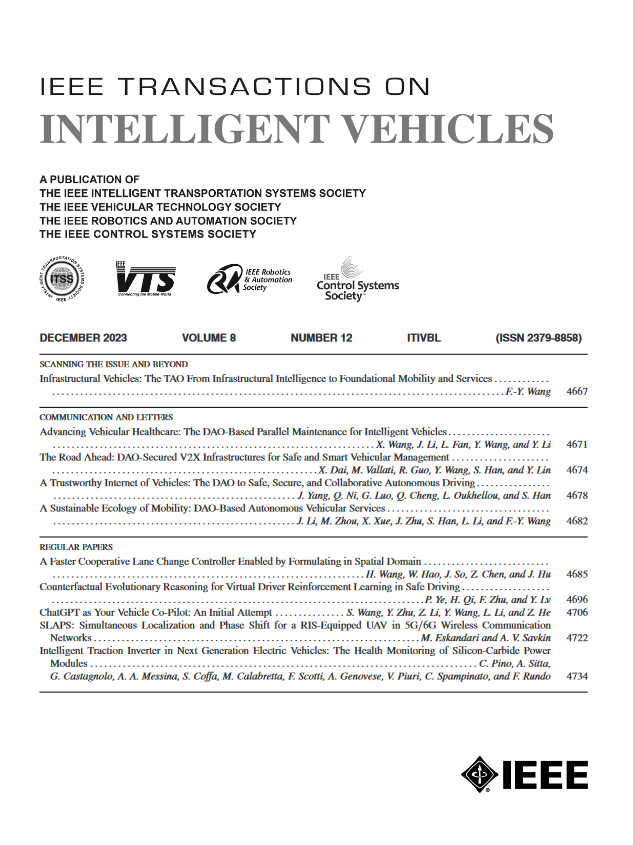Improved Consensus ADMM for Cooperative Motion Planning of Large-Scale Connected Autonomous Vehicles With Limited Communication
IF 14
1区 工程技术
Q1 COMPUTER SCIENCE, ARTIFICIAL INTELLIGENCE
引用次数: 0
Abstract
This paper investigates a cooperative motion planning problem for large-scale connected autonomous vehicles (CAVs) under limited communications, which addresses the challenges of high communication and computing resource requirements. Our proposed methodology incorporates a parallel optimization algorithm with improved consensus ADMM considering a more realistic locally connected topology network, and time complexity of有限通信条件下大规模网联自动驾驶汽车协同运动规划的改进共识ADMM
研究了有限通信条件下大规模互联自动驾驶汽车(cav)的协同运动规划问题,解决了高通信和计算资源需求的挑战。我们提出的方法结合了一种改进的共识ADMM并行优化算法,考虑了更现实的局部连接拓扑网络,并通过利用双更新过程中的稀疏性实现了$\mathcal {O}(N)$的时间复杂度。为了进一步提高计算效率,我们对cav的动态连通性图采用轻量级进化策略,并且从共识ADMM中分离出的每个子问题只需要管理一小组cav。通过与现有数值求解方法和方法的比较,验证了该算法的有效性。此外,在高保真CARLA模拟器中进行了涉及多达100辆车的大规模协同驾驶任务的仿真,这突出了我们提出的开发的显着的计算效率,可扩展性和有效性。
本文章由计算机程序翻译,如有差异,请以英文原文为准。
求助全文
约1分钟内获得全文
求助全文
来源期刊

IEEE Transactions on Intelligent Vehicles
Mathematics-Control and Optimization
CiteScore
12.10
自引率
13.40%
发文量
177
期刊介绍:
The IEEE Transactions on Intelligent Vehicles (T-IV) is a premier platform for publishing peer-reviewed articles that present innovative research concepts, application results, significant theoretical findings, and application case studies in the field of intelligent vehicles. With a particular emphasis on automated vehicles within roadway environments, T-IV aims to raise awareness of pressing research and application challenges.
Our focus is on providing critical information to the intelligent vehicle community, serving as a dissemination vehicle for IEEE ITS Society members and others interested in learning about the state-of-the-art developments and progress in research and applications related to intelligent vehicles. Join us in advancing knowledge and innovation in this dynamic field.
 求助内容:
求助内容: 应助结果提醒方式:
应助结果提醒方式:


